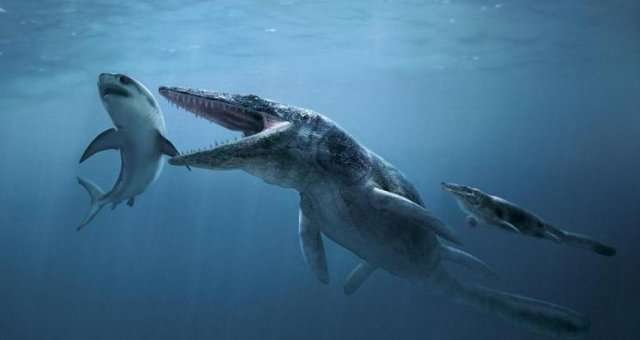
Mosasaurs were large, air breathing reptiles. Some mosasaurs reached a length around 50 feet and weighed in over 5 tons. Also known as the tyrannosaurus rex of the ocean, this massive carnivore ate everything from fish, to birds, and occasionally the unlucky land dinosaur. This is a complete guide to the mosasaurus on Beasts of Bermuda.
Contents
Clicky Things
All credit goes to Kaitlyn!
Editing your keybinds!
Most people forget to do this and end up confused and frustrated later. Take a moment before you jump in to take a look at your keybinds, and you may choose to change them around to better suit your needs and playstyle. Keep in mind that multiple binds can be applied to the same key, so be careful about double binding! The #1 bind you want to learn is that of your Ability, as this will be the key that will eventually allow you to grab and release your prey or prank subjects. You’ll also want to learn how to utilize your scent ability to guide you to food.
Pink Cammo?
Choosing the right skin
You may have to choose between a bright skin color and pattern you love, or one that was created to blend in. Greens and browns will help you blend in on the ocean floor among the weeds, though whites, grays and blues will help you blend in if you spend most of your time near the surface. Bright colors may make you stand out and make an easy target, though sometimes you just need to pick something you can live with.
Currently you are able to create multiple different skin variations, save them, and cycle through them after you’ve started to play. However, this will not be the case forever, and you will have until around 0.8 growth to pick a permanent color. You can save your skins by clicking the Save Skin option on the bottom right during creation. To access them in game you’ll need to open your character panel and select the button titled Show Saved in the top right corner of your character window.
The More the Merrier
To group, or not to group?
Mosasaurus alone are relatively weak, especially when first starting out. When you first get in the game, you’ll be at the mercy of the other aquatic predators who share your waters. If you truly want to survive and thrive, a group is mandatory. Not only will you gain fellow hunters, but you’ll also gain fellow defenders, and much more!
You are able to play solo for quite a while if you so choose, and may either choose to play lone wolf in the middle of the action and battle other players near spawn and the main islands, or take to the open ocean to forage off of randomly placed ribs strewn across the ocean floor (yellow and red plumes). Keep in mind your stress level will go up when out at sea, the pressure of the depths may stress you, and you’re still vulnerable to other players. Remember that increased stress means slower growth, and potential death.
Delivery or Take-out?
What to eat?
When you first start off, you’ll find it much easier to keep yourself fed. Fish do not provide enough food to be worth the effort and should only be used as a last resort. If you or your goup cannot catch prey to feed yourselves, look around for edible ribs scattered along the ocean floor by using your scent. As juvenile mosas, these small ribs provide plenty of food to sustain you until you are able to find other prey.
Scenting under water is difficult, as the smoke plumes don’t stand out like they do on land. One trick to assist you with scenting is to do it near the surface so you’ll be able to see the bright red plumes from a long distance away and use scent underwater only when you need to zero in on your prize.
Baby’s First Talent Points
What do I do with my 5 talent points?
When you first start off you’ll have 5 talent points to spend, and where you spend it may be a matter of life or death. The most beneficial talent you can get in the beginning is Keen Senses, which can be obtained by following the Talent tree 5 points down to the right, placing one point in each arrow section to reach the end.
Comfort Increase > Sunbather > Food Longetivity > Scavenger > Keen Senses
Keen Senses gives you the ability to highlight animals around you that are moving. It makes the detection of danger and prey much easier, and is mandatory as you get older and learn to hunt.
Leggo My Stego!
Your special ability
The mosa lay claim to the ability to grab prey or unsuspecting pack members and carry them around. You’re also able to grab your prey and use your primary attack while carrying them to thrash them around in the water, dealing additional damage. You may not be able to use this ability as you start off but will be able to use and master it as you learn and grow. Your size and talents will determine what you can grab and carry (Powerful Jaw).
As you begin to utilize your ability, you’ll notice that the larger the prey, the quicker your ability and oxygen will deplete. Pay close attention to these two areas when hunting, as they may mean the difference between living and dying. You can carry your prey only so far before you’ll run out of ability and let go, at which point they’re free to attack you.
The best use of this ability is in combination with the talent Asphyxiation as a drowning technique. In this way, you’ll use your grab ability to simply drag your prey to the deepest spot available, where you’ll then thrash it around until you run out of ability, at which point you may return to the surface to breathe or sit back and watch your prey inevitably drown before your eyes – a safe kill.
Party Hearty!
One of the biggest benefits is receiving a buff from those around you. You don’t need to be in a group to receive this buff, it just helps make it easier. Depending on how long you group with certain players, your relationship to them changes, leading to increased damage mitigation against each other. You start from the bottom and work your way up from D to A. At grade A you have 75% damage mitigation, allowing you to both attack prey at the same time without fear of killing each other. If you continue beyond that, you’ll reach S grade, at which point you receive 100% damage mitigation, meaning until one of you dies, you will not be able to damage each other.
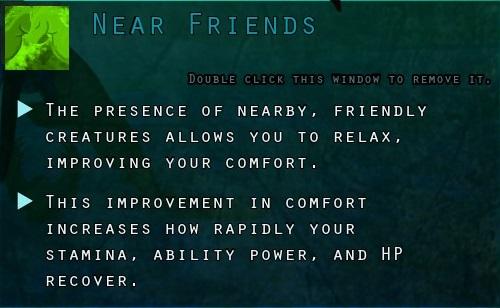
Grouping has its benefits and its downfalls, just like anything else.
Pros
- Increased damage mitigation means increased safety and survival for you. Sometimes strategic grouping with larger mosas or growing mosas is in order, as this prevents them from betraying you later on and turning you into lunch. This also allows you to jump into the thick of the fight to assist without killing each other off.
- Increased friendship grade is mandatory for nesting to take place.
- More hunters mean more food, or more opportunity for food. Typically in a group, more than one player is actively hunting.
- Many players hunting can help with taking down larger prey, leading to more points and food all around.
- Groups usually have different people with many different playstyles, leading to a lot of learning opportunity as you grow.
- Protection. Let’s just say it, there’s safety in numbers, and few players will want to challenge a group of mosas working together.
- Wider map coverage. Many times, large groups split off into multiple sub-groups who spread out around the map to hunt. Each sub-group is capable of hunting and bringing in food in the event one group is unsuccessful.
Cons
- Increasing friendship grades means decreased damage against your group members. If a time comes that you need to attack or kill a previous group member, doing so may be improbable, if not impossible. Whether you remain in the same group or not, your grade will remain the same until one of you dies.
- More mouths to feed mean more food is needed.
- More players mean more chaos, more noise, and more distraction.
- Many times, random group members you’re not familiar with may tend to be disrespectful with other group members, and may not respect the chain of command or requests from senior group members.
- When you group with people you’re not familiar with, your tag is on their screen, and they will know where you are at every moment. One betrayal may get you killed, without you having any chance to hide.
Who’s the Boss?
Group dynamics
You’ve finally been invited to a group of other mosas, perhaps some of them have played long and have progressed far. You need to know your place in the group, and respect those who invited you. Many groups have older, experienced mosas in charge of the hunting. Older mosas generally have a good grasp and mastering of their abilities, and you will learn a lot simply by observing.
Any group that has a mixture of young and old faces problems when the young foil the hunt, get into trouble, or generally just annoy the older members. If you plan on playing with your group for long periods, remember to keep your head down and stay quiet. Offer to assist, or ask questions if you have them, but try to stay out of the way. Simple observation can grant you an enormous education.
Remember, whether or not you are grouped with other mosas, the same dynamics apply. If you show up to a location where older mosa are hunting, your loud splashing and playful antics will likely not be appreciated. For many older mosa, if you ruin their hunt, you will become the hunted.
Dysfunctional Family
Family dynamics
Mosasaur tend to stick to small to medium sized groups of between 4-6 members, typically with varying ages. The older mosasaur takes on the role of the hunters and defenders, sometimes forcefully subduing or removing the younger mosasaur from places of danger or simply out of the way of a hunt. The younger members of the group tend to observe, practice and sometimes get in to trouble. The young are not yet in a place growth and experience wise to be useful to the group and will learn and grow as they observe.
It’s not uncommon for an adult to grab and carry the younger members of the group, especially in cases where the younger mosa are stubborn or unable to keep up, and in times when danger is present. Typically, in the case of danger, one mosa will choose the role of defender and the other of the guardian. The guardian(s) will typically carry or corral the more vulnerable members to an optimal location, while the defender will either face the threat, or occupy the threat long enough for the rest of the group to get to safety. In larger groups, there is usually multiple defenders and guardians.
The goal of the older mosa in the group is to ensure the members are safe, fed, and are able to learn and grow in the hopes they’ll become a contributing member of the group. Feeding multiple mouths can get difficult and is certainly time consuming. There is safety in numbers, and the group strength as a whole depends on its members becoming useful contributors. You are expected to learn and grow, and eventually earn your place in the group, eventually taking on the role of guardian, defender or hunter.
Communication with non-group members
You’ll inevitably come face to face with other mosasaur as you learn and grow, and it’s important to know and understand the behaviors you encounter. As a young mosasaur, whether grouped or not, there are many different non-verbal cues you will need to learn to pick up on in order to stay alive.
Encountering other groups
You will encounter other mosa groups – some may be friendly, and others may not be. Most mosa hesitate to attack other mosa, though the possibility exists. Aggression between mosa, in many cases, may be avoidable. When encountering other groups, minimize the possibility of aggression by doing the following:
- Make no threatening gestures or calls
- Acknowledge their presence, and clearly state your intentions
- Do not steal or eat from food that may belong to them
- Do not eat unless they’ve verbally offered food to you
- Do not linger, and leave the area as soon as possible
- Do not make a lot of noise or draw a lot of attention
- Observe for non-verbal cues, and heed any warnings
Most mosa groups will avoid confrontation as much as possible, and may use multiple cues to indicate their annoyance long before anyone is hurt. Pay attention to everyone around you. Many mosa will employ warning cues to encourage you to leave the area, and these include:
- Threat calling
- Jaw snapping
- Chasing
- Physically grabbing you or another mosa and moving them away from a group or location
- Warning bites
If you observe or experience any of the above, it’s a good indication that the territory is claimed, and that you are not welcome. Whether you’re an adult or juvenile, the warnings generally remain the same. If you choose to stay despite these warnings, you’ll likely end up dead.
Dinner is Served!
The hunt is on!
Mosas do well in the water, provided food is present. Unfortunately, the food offered in the water is not usually capable of sustaining a population of aquatic reptiles, so most mosa are forced to seek food out of the water, whether from land or air.
Hunting is a necessity and requires a large amount of patience and practice. Most prey the mosa seeks out is on land and requires careful and precise tactics. The mosa will need to be old enough and experienced enough to be able to grab the prey. Hunting for the mosa is typically ambush hunting. Patience is required to hide beneath the surface, out of view, while you wait for an unsuspecting or foolish dinosaur to walk close enough to the water’s edge for you to grab it.
Some mosa can hunt juvenile or even mid-sized apatos and rexes, grabbing them from the shoreline and dragging them down to the depths to drown. Facing such massive and deadly prey requires skill and tactics built around simply drowning their prey, avoiding gnashing teeth or deadly tail whips.
Most mosa who have grown to adulthood are skilled or masters with beach ambushing, being able to throw themselves on shore to grab their meal, and slowly slink back to the waters to finish the kill. Beaching for a mosa is very dangerous, leaving them highly vulnerable, so beach ambushing is usually attempted only by those with the talents or experience to be able to beach and recover.
The most effective, and safest option for hunting is to hunt in pairs. Both mosa should know their capabilities and limitations. If beaching may occur during a hunt, it’s a good idea to have a mosa who is capable of grabbing the second mosa sit back in the event danger appears, or the first mosa requires assistance off of the beach. Once the prey is dragged into and under the water, both mosa can take turns grabbing and attacking the prey, allowing each other an opportunity to go for air, or to recuperate stamina/ability or health.
In any and all hunts, remember that your ability will have a negative effect on your air. Don’t forget to breathe at the end of a hunt! Even the mightiest mosa have drown after winning an epic battle.
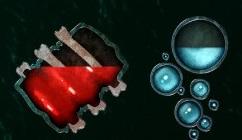
Red vs Blue
Mosa vs Krono
There’s no doubt that the rivalry exists between the mosa and the krono. The mosa are more capable of hunting land animals, leaving the krono to focus their efforts mostly within the confines of the water. This means that the primary prey for krono is usually mosa.
A newly hatched mosa and krono are not equal, as the krono will have the upper hand in a fight. The krono itself was built to hunt and kill mosa, and usually does so with ease. While not on equal terms, a matched mosa and krono will struggle with their own weaknesses – the mosas being health, and the kronos being speed.
Whether you choose to target krono in an effort to prevent the loss of mosa at a future date is up to you.
Mr. Mom
Nesting isn’t easy
Nesting for the mosa isn’t easy and requires perfect timing and nest placement. Mosa eggs cannot be laid below the surface of the water but must be near enough to the water that the parents are able to nest them in, protect them, keep up the nest, and eventually grab them and return them to the sea.
Finding the perfect place to lay the nest is hard, but to have the tides ruin your plan and kill your unhatched child is reason enough to go through the effort. Nests placed above water that are eventually flooded due to rain or tides will result in the egg drowning very quickly. Plan for the tides rising and falling. Be ready to lay a new nest and move the egg if water threatens it. Eggs can be picked up by the parents and moved to a new nest, but must remain out of water in order to survive.
Why nest in as a hatchling mosa? Well, depending on your parents, you will be at an increased advantage in obtaining positive traits, especially if neither parent has negative inherited traits. The hatchlings may not inherit the same traits as the parents, but the likelihood of positive traits is higher than that of a fresh spawn.
Talents for the Talentless
Spending your points wisely
Spending your points wisely is another struggle, and many players choose different routes. You have three different focuses, though the primary two are combat and agility, with some going toward survival. As you progress, your choices will greatly affect your capabilities and progression.
Some players choose agility tree, choosing to outrun their enemies and their prey with relative ease. Others choose the combat tree, equipping themselves with powerful talents which allow them to hunt and kill without too much of a struggle. You will face assaults from other players frequently, so your choice will be whether to focus on fighting or fleeing.
Most older mosa have chosen a varied tree, focusing heavily in one tree, though branching out everywhere. Where you choose to go is entirely up to you and your intended playstyle. Keen Senses remains a highly recommended talent in the beginning.
What’s Your Talent?
Ability Pool
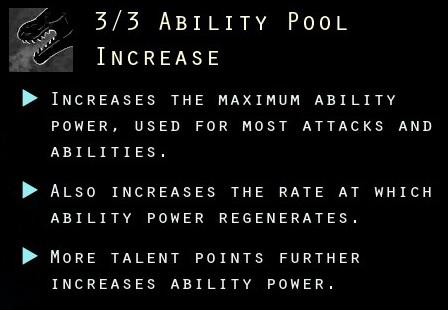
Asphyxiation
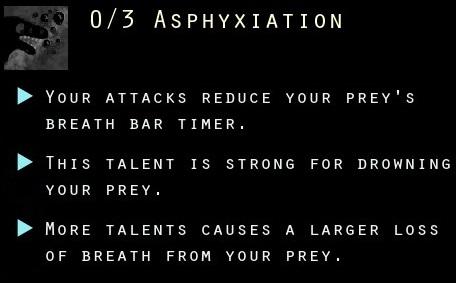
Beachgoer
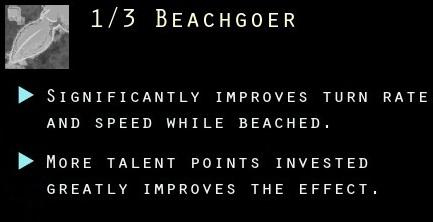
Comfort Increase
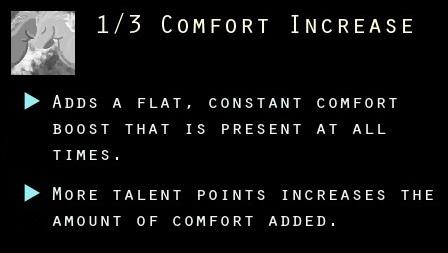
Damage Increase
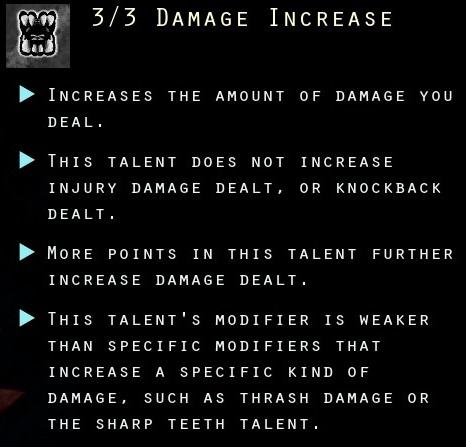
Exhausting Bite
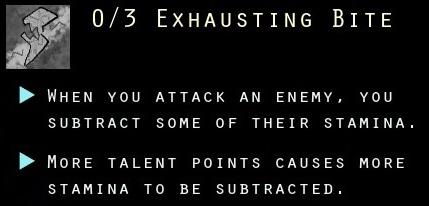
Food Longetivity
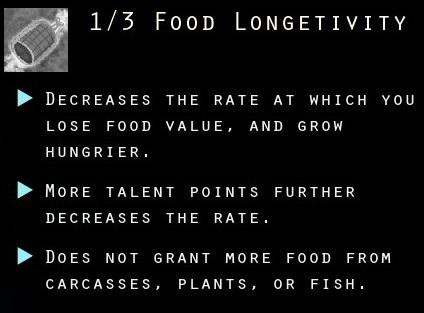
Good Parent
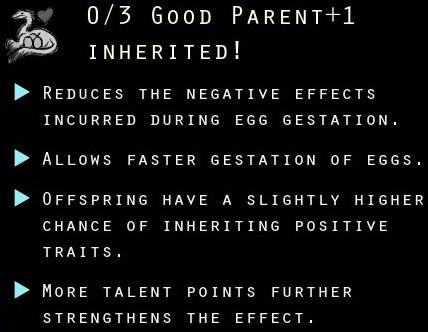
Healing Increase
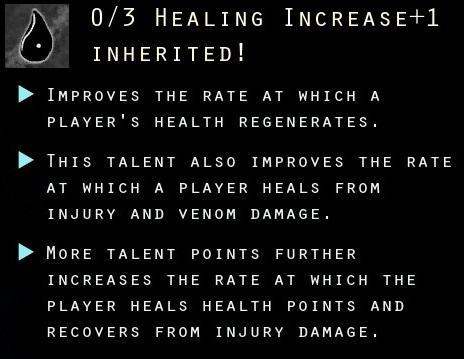
Health Pool Increase
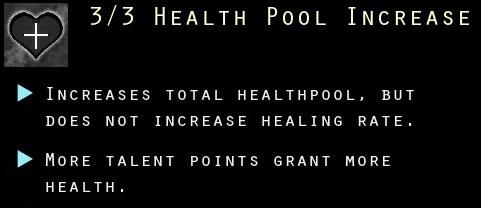
Herbalist
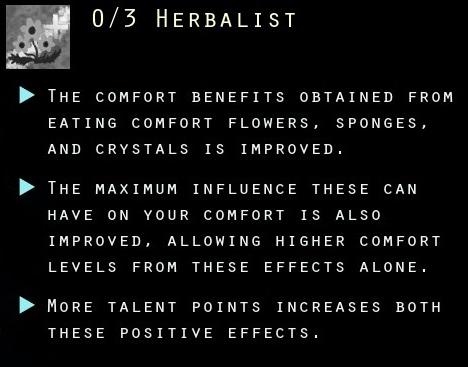
Improved Dart
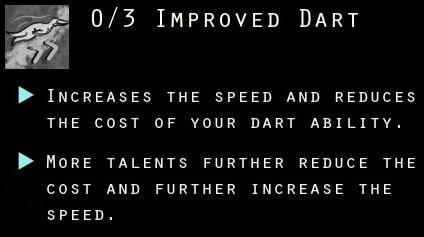
Intimidation
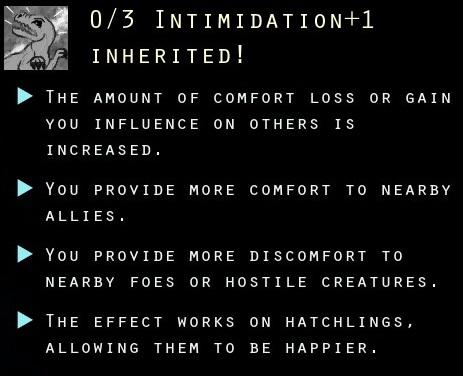
Keen Senses
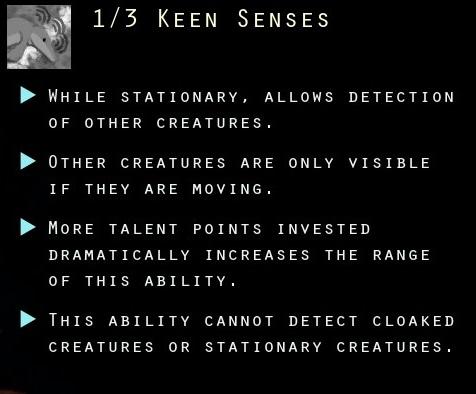
Long Runner
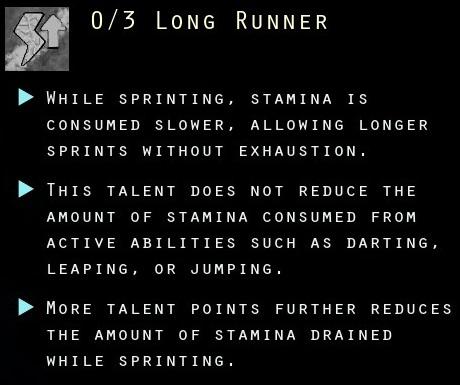
Nimble Footed
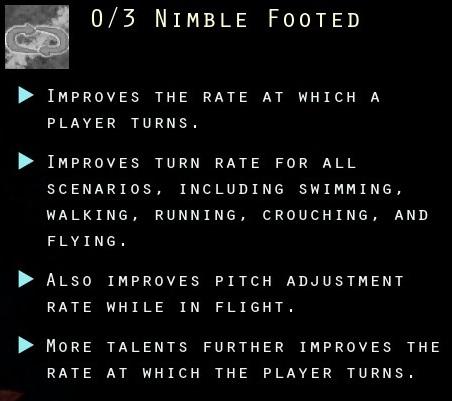
Pressure
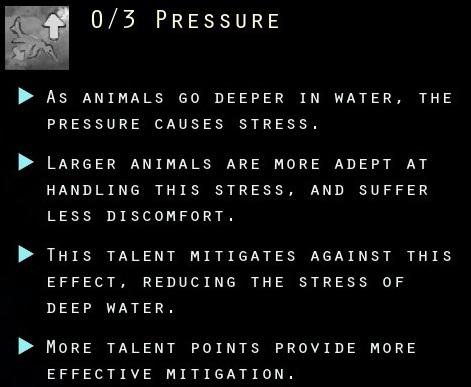
Powerful Jaw
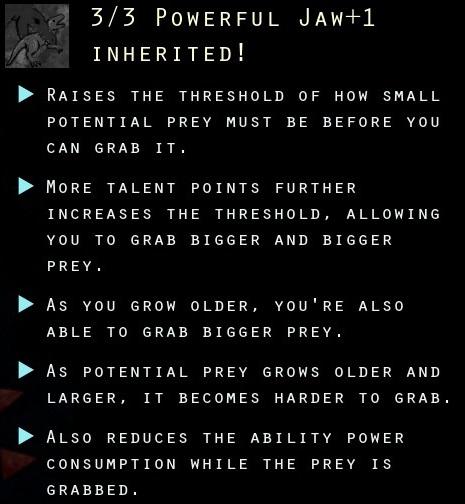
Powerful Neck
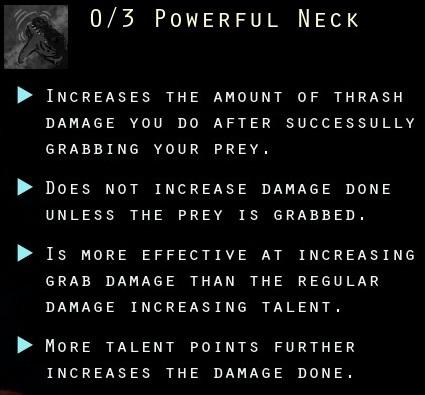
Rich Blood
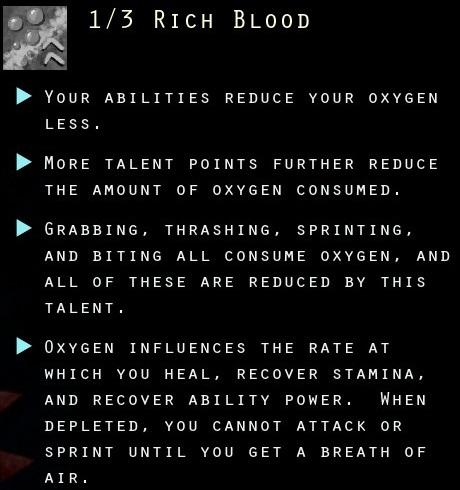
Scavenger
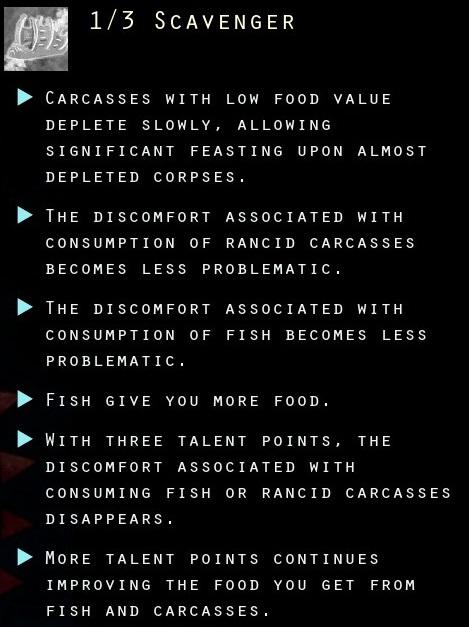
Sharp Teeth
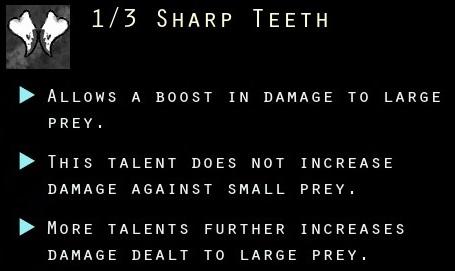
Sneaky
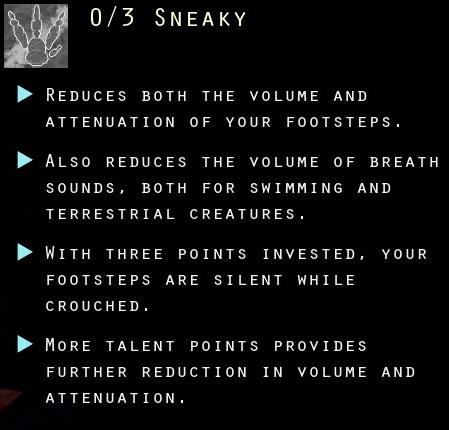
Speed Increase
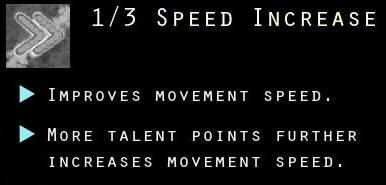
Stamina Pool Increase
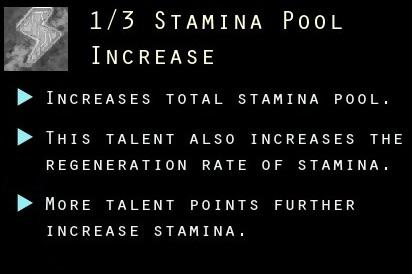
Strong Bones
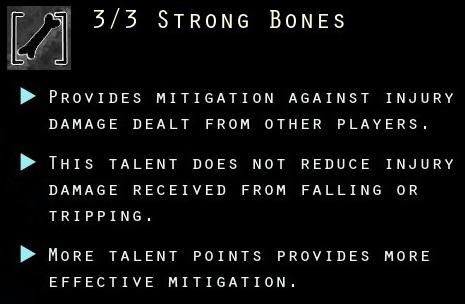
Sunbather
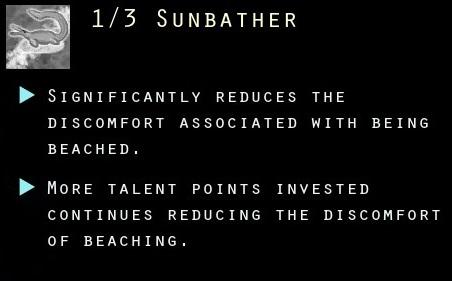
Swim Speed Increase
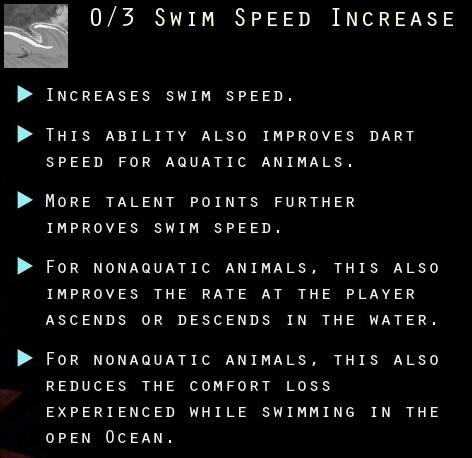
Thick Hide
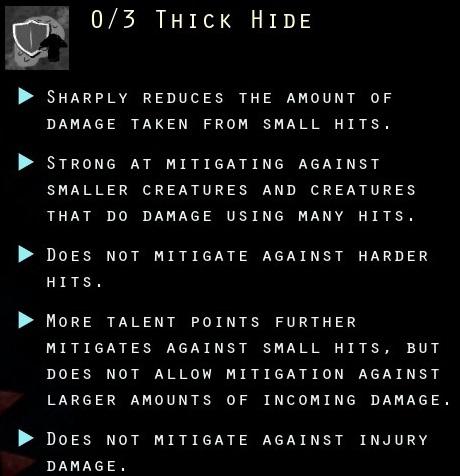
Weather Resistance
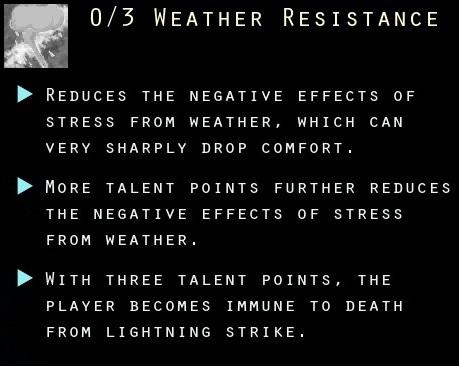

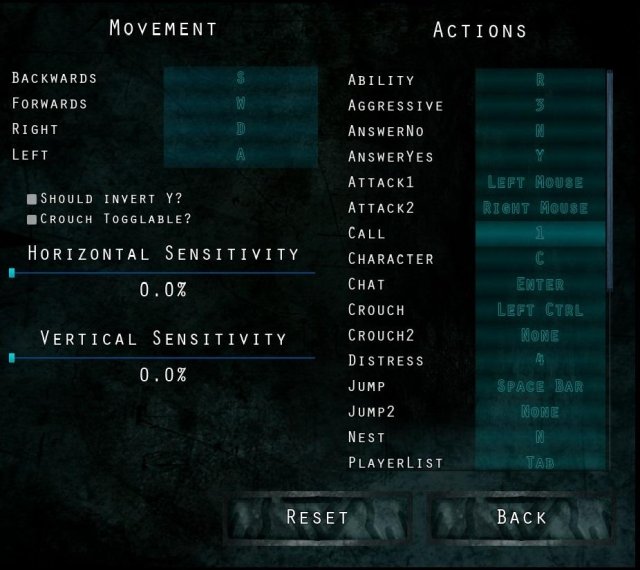
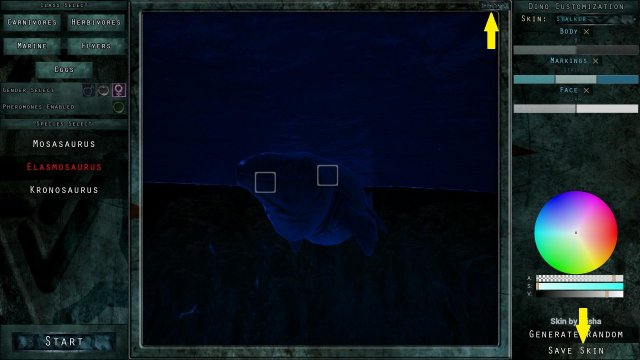
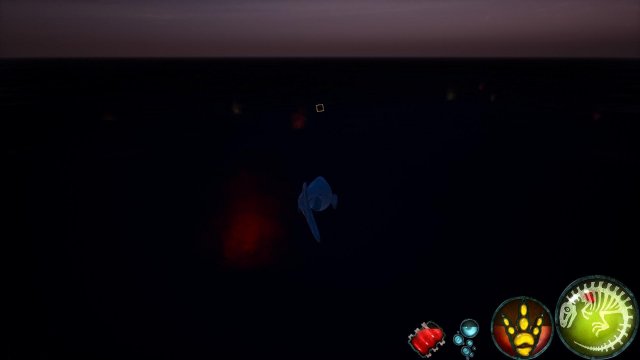
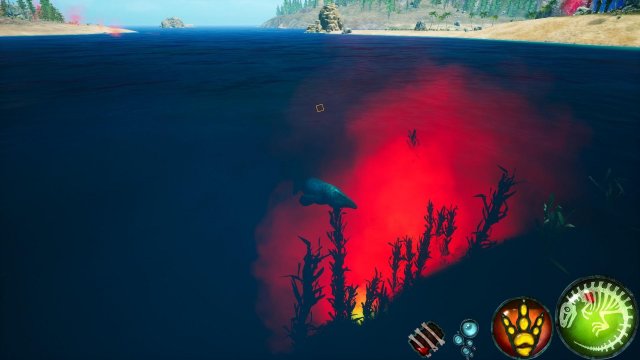
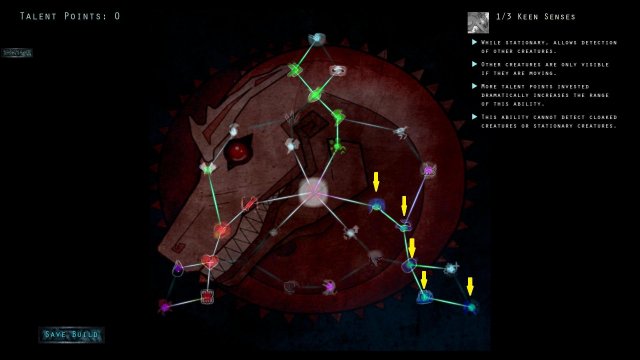
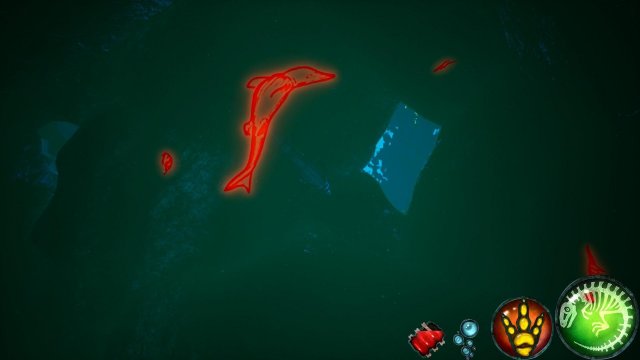
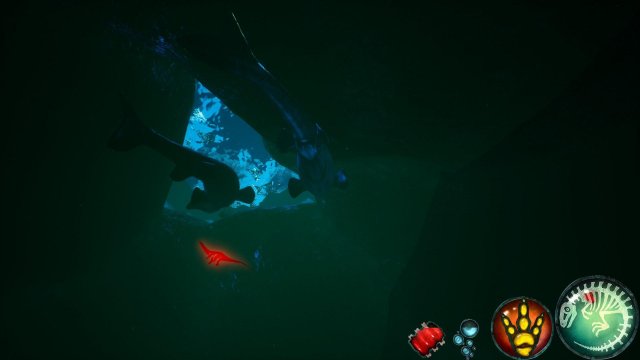
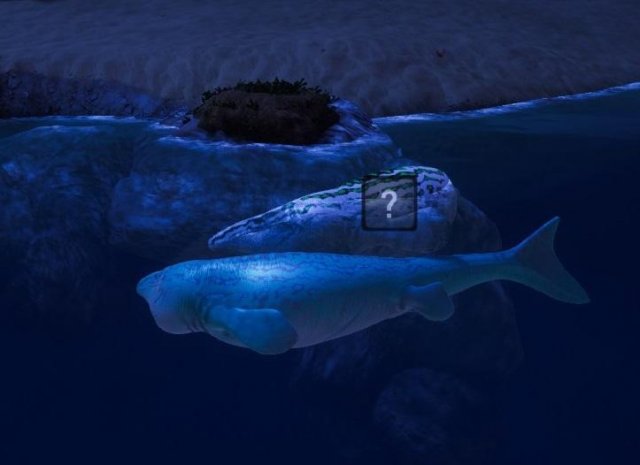
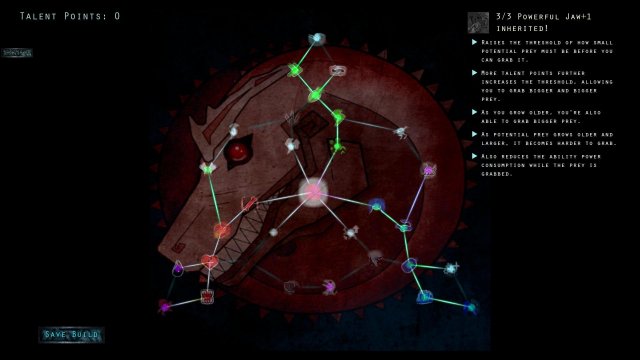

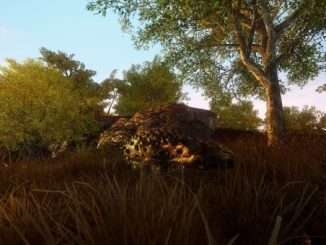
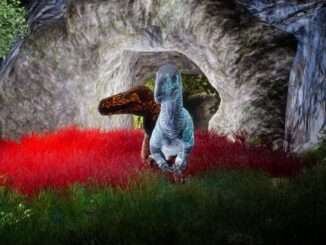

Be the first to comment